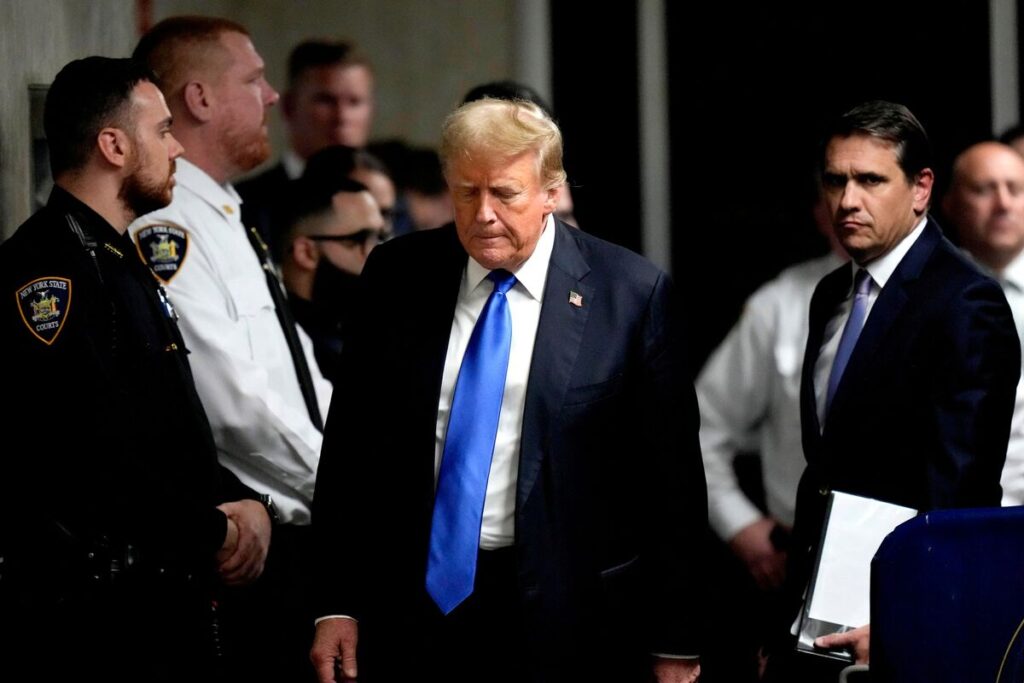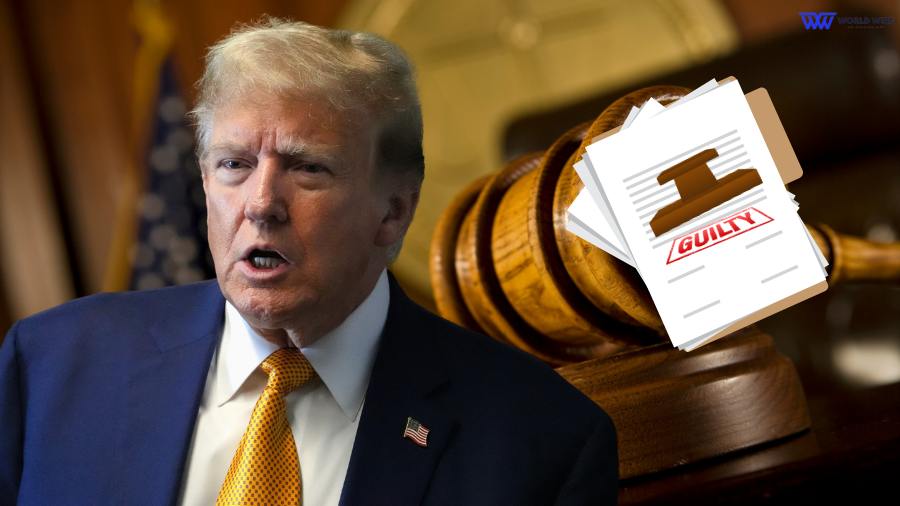On Thursday, Donald Trump was convicted of the charges of falsifying business records he made to protect his 2016 election campaign.
However, he made a payment to Stormy Daniels, a leading p*rn actress, to keep her mum about their se*ual relationship as he was afraid that if Daniels opens about their relationship with the people, it will lead to distress in his image, especially among the female voters.
Twelve New Yorker juries found Trump guilty on all 34 counts of falsifying business records.
The jury’s decision, which involved details of secret deals, tabloid scandals, and an agreement reminiscent of Watergate, took two days to make.
After the verdict was announced, Trump appeared mostly expressionless and gloomy. However, his sentence is scheduled for July 11.
Key Takeaways:
- Highlighting the case, the investigation started eight years ago with a tip about another hush-money payment of $150,000 to a Playboy model who also claimed an affair with Trump just as he was about to become president.
- Prosecutor Joshua Steinglass said Mr. Trump tried to deceive American voters. Trump’s lawyer, Todd Blanche, claimed the case relied too much on Cohen’s testimony, whom he called “the greatest liar of all time.” However,
- Manhattan District Attorney Alvin L. Bragg thanked the jury and said Mr. Trump had falsified records to hide a plan to corrupt the 2016 election. He emphasized that the jury’s decision is what matters most.
- The jury spent about 10 hours deliberating and asked to re-hear parts of the testimony from Cohen and David Pecker, the former publisher of The National Enquirer, who was said to be involved in a plan to suppress negative stories about Trump during the 2016 campaign.

- Mr. Trump showed little emotion during the verdict, shaking his head as the jury foreman said “Guilty” 34 times. After the verdict, Mr. Trump appeared somber and complained about the case, accusing the judge of bias. He told reporters that the real decision will be made by voters on November 5th, without addressing why Americans should vote for a convicted felon.
- Reactions to the verdict were immediate and varied among the people. Outside the courthouse, some demonstrators celebrated while others were upset. Mr. Trump’s campaign called him a “political prisoner,” and President Biden’s campaign urged people to vote to prevent Trump from returning to the White House.
- Even Mr. Trump could face up to four years in prison, he might not go to jail. He could get probation and is sure to appeal the verdict, which means it could take years to settle. The jury’s decision is historic, ending one of four criminal cases against Mr. Trump that might have gone to trial before the election.
- Highlighting his presidential eligibility, the Constitution doesn’t stop a felon from running for president or serving as one. Mr. Trump, who claims that the case is politically motivated, may use the verdict to his advantage in his campaign, portraying himself as a victim of political opponents.







Add Comment